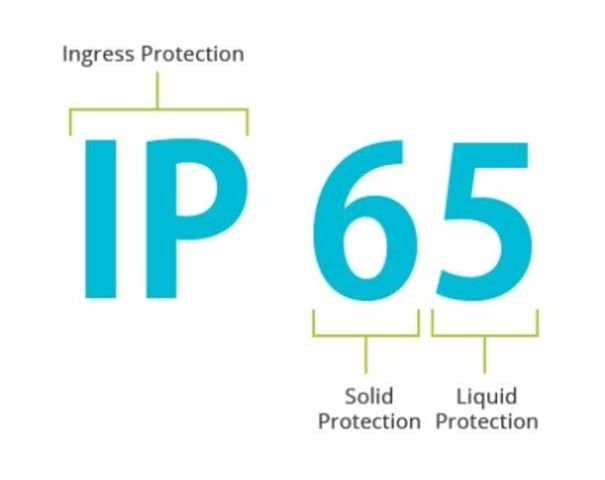What is an IP68 Rating? There are many IP ratings that you can find linked with Smartphones, Smartwatches, and earphones. However, do you know what the IP rating of a device is? If you are unaware of this, you should know that it indicates how much your device is protected against water and dust. We can only find a top-quality mobile nowadays with water and dust resistance.
Although it was rare previously, it is common in current times. Companies like OnePlus used to keep their devices away from IP ratings. But they have currently added this to their high-quality mobiles. So even upcoming mobiles will come with a few forms of protection. But what about the numbers, and what do these signify? What does IP68 Rating mean?
What is an IP Rating?
IP rating refers to Ingress Protection. This one is a universally accepted protection measurement against dust and water. It means how well your device (with electrical housing inside) prevents dust and water from entering.
What Do the Letters and Numbers of IP Ratings Indicate?
The ratings are made up of four characters. While the first two letters indicate Ingress Protection, the next two numerical mean:-
The first numerical indicates how well the device can protect itself against small solids (dust/sand etc.), with a maximum rating of 6.
The second numeral refers to the liquid or water resistance rating, where the highest rating is 9. It ranges from no protection up to high pressure & high-temperature water jets. Besides, it lets you know how much water a device can handle because this ranges from one to eight. You will get better protection when the number is higher.
Are IP-rated Devices Completely Protected?
No, the degree of protection that a device can offer is only indicated by the IP rating. But it never indicates that the device will not get damaged. So these ratings can provide more or less protection.
For instance, devices that come with IP68 are more protected than devices with an IP55 rating. Besides, you should note that the term used here represents water and dust. It indicates that the given protection doesn’t withstand other liquids such as coffee, alcohol, seawater, etc.
How Does A Device Get an IP Rating?
These are standardized by IEC or International Electrotechnical Commission. If a device wants to get an IP certification, it has to undergo a series of lab tests, and after that, it is rated.
What Does IP68 Mean?
The IP68 rating meaning is that a device can survive against dust. In addition, it resists up to 1.5 meters of water for 30 minutes.
While IP stands for Ingress Protection, 6 represents Dust Tight, and 8 represents Survives being submerged in water. Different combinations are there regarding IP ratings. So you may need clarification. But remember that IP68 is one of the most common ones you can find on technology devices.
Regarding solids, devices are tested against dust and found to be dust tight. If the first numeral is “6”, devices can be tested and certified on a specific scale.
As it can last underwater, you don’t need to test it in the rain. Besides, there is no need to check if it can withstand spray from a jet. It’s why Sony states IP65/68 on its devices.
Level 1:
Solids (1st number)
It is protected against solid objects over 50mm, like hands.
Liquids (2nd number)
It is protected against vertically falling water drops.
Level 2:
Solids (1st number)
It is protected against solid objects over 12mm, like fingers.
Liquids (2nd number)
It is protected against direct water sprays up to 15 degrees from the vertical.
Level 3:
Solids (1st number)
It is protected against solid objects over 2.5mm, such as tools and wires.
Liquids (2nd number)
It is protected against direct water sprays up to 60 degrees from the vertical.
Level 4:
Solids (1st number)
It is protected against solid objects over 1mm, such as small wires.
Liquids (2nd number)
It offers protection against water sprayed from all directions.
Level 5:
Solids (1st number)
Dust protected — limited ingress of dust permitted.
Liquids (2nd number)
It is protected against jets of water from all directions.
Level 6:
Solids (1st number)
Dust-tight — no ingress of dust permitted.
Liquids (2nd number)
It is protected against strong water jets from all directions.
Level 7:
Solids (1st number)
Liquids (2nd number)
It is protected against the immersion effects in water — between 15 cm (5.9 inches) and 1 meter (3.3 feet) for up to thirty minutes.
Level 8:
Solids (1st number)
Liquids (2nd number)
It is protected against the immersion effects for a long time under pressure in water. Generally, 1.5 meters (4.9 feet) of immersion is for up to thirty minutes.
Applications for IP68 Enclosures:
This high protection standard helps to make an excellent choice for a few of the most trending electrical and electronic applications. These are:
- Marine equipment
- Equipment in flooding areas
- Water treatment and processing equipment
- Equipment for repeated high-pressure hose-downs
- Due to the presence of various applications, the materials and features can make a huge difference in selecting the best model.
Conclusion:
You should know that a mobile phone may not be completely waterproof though it has a high IP rating. It is possible to drop a device with an IP68 rating in a freshwater pond or a tub that will work well. But if you dip this in a chlorinated pool or the ocean, you can face issues.
The rubber seals can protect your device from water damage. But it could be weakened over time, leading to a reduction in the water resistance of your device. In addition, these seals can erode when your mobile faces coffee, soft drinks, or champagne spills.
Frequently Asked Questions:
- Is IP68 OK for swimming?
You can wear a fitness band or smart watch while jogging in the rain. But it doesn’t tell you that you can use the device during aquatic activities like swimming.
- What does the IP68 rate mean?
It is one of the ratings occupying the top of the scale.
- Are IP68 phones really waterproof?
The second numeral ranges from zero to eight. For example, suppose the Samsung S8 is rated IP68. So, it indicates that this one is the highest rating to resist dust and water.







